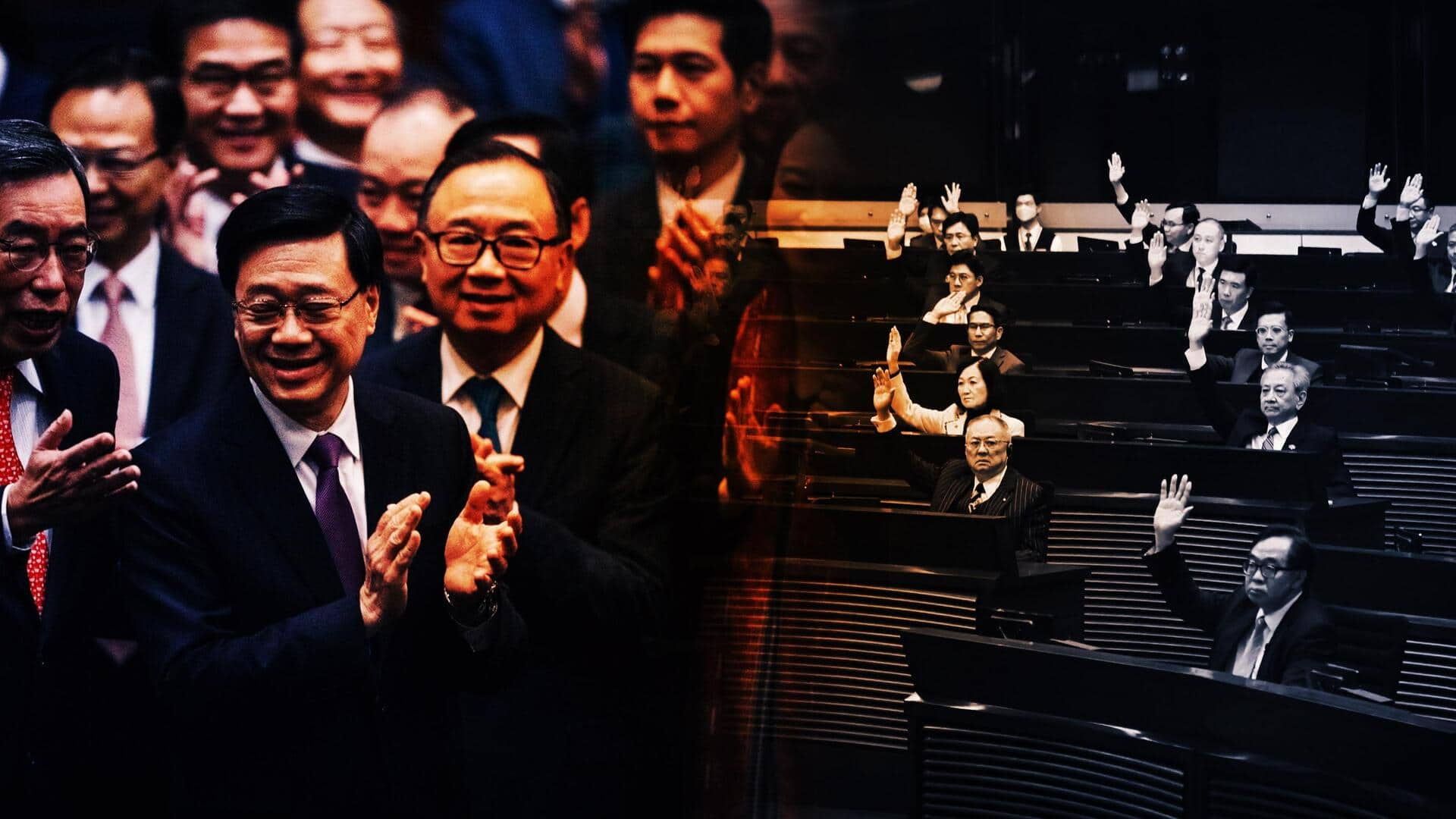
What's Article 23, Hong Kong's new draconian national security law?
What's the story
Hong Kong has approved a new national security law—Article 23—which gives lawmakers sweeping powers to quell opposition. The legislation was ratified a mere 11 days after its introduction at the request of city leader John Lee. Reports said Hong Kong's Legislative Council, packed with Beijing loyalists following an electoral overhaul, rushed the law through to approval. This is Hong Kong's second national security law. The first was imposed by Beijing in 2020, which triggered massive anti-government protests.
Context
Why does this story matter?
Critics worry the new law will further erode civil liberties that Beijing promised to preserve for 50 years when the former British colony returned to Chinese rule in 1997. Notably, Hong Kong's political scene has changed massively since the large-scale 2019 protests that challenged China's rule over the semi-autonomous territory and the imposition of Beijing's National Security Law. In the aftermath, activists faced prosecution, while pro-democracy media outlets like Apple Daily and Stand News were forcibly closed.
Article 23
Deciphering the provisions of Article 23
Hong Kong authorities have said the new legislation—which will come into effect on March 23 (Saturday)—is necessary to reinforce existing national security laws. The new law adds 39 new security crimes to the already harsh national security statute that Beijing imposed unilaterally on Hong Kong in 2020. It zeroes in on five categories of crimes: treason, rebellion, sabotage threatening national security, foreign meddling in Hong Kong's affairs, and spying and pilfering of state secrets.
Punishment
What is the punishment for those found guilty?
The law also authorizes officials to enter properties to confiscate seditious materials without necessitating proof of intent to provoke public unrest or violence. Those found guilty of the aforementioned crimes face life sentences, while those found to be involved in espionage and sabotage, including cyberattacks, face up to 20 years in prison. For those found guilty of conspiring with "external forces" to commit an offense, additional sentences ranging from two to three years in prison may be imposed.
Outside residents
New law can also apply to overseas-based activists
Furthermore, inciting hatred toward the Chinese Communist Party leadership is now punishable by up to 10 years in prison. The new law can also apply to actions taken outside of Hong Kong by both people and enterprises. The measure is considered crucial in China's pursuit of overseas pro-democracy activists and opponents labeled as "anti-China elements." Overseas-based activists may also have their passports canceled, and those suspected of sponsoring international critics, including parents, face incarceration.
Hong Kong government
Government's position on Article 23
Despite widespread disapproval, the Hong Kong government insists that the legislation targets "an extremely small minority of people" who pose a threat to national security. Hong Kong's Chief Executive, Lee, described it as a "historic moment." Lee maintains that ordinary businesspeople, individuals, organizations, and the media sector "will not unwittingly violate the law." He further claimed that implementing Article 23 would allow the government to focus on "improving the economy," implying a perceived link between national security and economic stability.
Consequences
Consequences of Article 23 for residents and businesses
Lee's assurances contradict the outlook of financial enterprises, journalists, and activists who risk treading a tightrope given the arbitrariness of the new law. Legal expert Michael Davis cautions that the law will have "dramatic" effects, transitioning Hong Kong from a liberal constitutional system to an oppressive national security regime. Journalists are anxious that their reporting might unintentionally lead to legal complications, while activists may face stricter penalties for violating the sedition law.